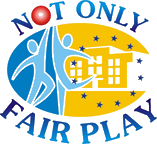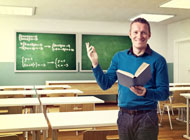
- Home
- Best
Practices - Toolkits
How to ... - Sport
Events - Guidelines
- Information
& Contacts - Project Management
A collection of student stories and initiatives about sport.
This section offers access to a collection of toolkits to promote sport at school.
-
 Physical Education Teachers
They are the main point of reference for students at school
Physical Education Teachers
They are the main point of reference for students at school
-
 Teachers
Teachers of all subjects can contribute to promote sport at school
Teachers
Teachers of all subjects can contribute to promote sport at school
-
 School Directors
Their support is a key element to promote sport at school
School Directors
Their support is a key element to promote sport at school
-
 Resources
A database of resources for teachers, PE teachers and school directors for the promotion of sport at school.
Resources
A database of resources for teachers, PE teachers and school directors for the promotion of sport at school.
Sporting events are organised in each partner country
Guidelines for policy makers willing to raise awareness on the importance of promoting sport in schools
Events
The Not Only Fair Play project has been promoted through conferences and articles.
Partnership
-
 Contractual Partners
From this section it is possible to access a description of each contractual partner of the Not Only Fair Play project.
Contractual Partners
From this section it is possible to access a description of each contractual partner of the Not Only Fair Play project.
-
 Schools
From this section it is possible to access information about the schools involved in the Not Only Fair Play Project in the 9 European countries involved.
Schools
From this section it is possible to access information about the schools involved in the Not Only Fair Play Project in the 9 European countries involved.
-
 Associated Partners
A number of associated partners officially joined the project in order to ensure the project sustainability by continuing to use the project deliverables over the next years.
Associated Partners
A number of associated partners officially joined the project in order to ensure the project sustainability by continuing to use the project deliverables over the next years.
This section of the Not Only Fair Play portal provides administrative information for the project contractual partners and for the European Commission, and is password protected.
Teachers
Homepage > Toolkits > Teachers

Teachers of all subjects can contribute to promote sport at school
How to Use Sport as a Means to Acquire Life Skills, Including Strategies of Communication with Families
A Toolkit for Teacher of All Subjects
- the availability of a wide range of documents (videos, testimonials, guides) useful to stimulate teachers’ reflection on teaching activities to be designed and implemented in the curriculum and beyond.
- the use of technologies both by teachers and students to communicate the educational paths and activities carried out which relate to the promotion of transferable skills. These activities should be connected with concrete projects and educational paths (physical wellbeing, lifestyle, strengthening of relations, spirit of entrepreneurship)
Transferable skills you can acquire by playing sports are numerous, for example understanding the value of teamwork, having a sense of responsibility, respecting rules, solving problems, being motivated and motivating, being organized. The use of technology can facilitate the development of these skills:
When talking about technology, it is natural to refer to the “class 2.0”, that is, the digital classroom. There are some European “twin-projects” such as the project “Escuela 2.0” in Spain and the project CAPITAL in England
In 2.0 classes, each student is equipped with multimedia support such as personal PC or tablet. Each student is responsible for what the school offers him, he must guard it with care, use it properly, follow the rules. Students in upper secondary schools have the opportunity to surf the internet and must demonstrate consciousness in the use of this instrument. Students are also provided with a personal email address they are responsible for
- Class 2.0Activities and strategies in a digital class. Link available only in Italian
- Teaching HistoryExperiences and projects
- “I quaderni della ricerca” (“Notebooks of research”) “Teaching in a digital class – technologies and teaching between theory and innovative practices”. Link available only in Italian
- “Approfondimenti per classi digitali”(“More information for digital classes”)This article contains links to documents , videos and web inquiries. Link available only in Italian
- An inclusive digital classResearch design on LIM and classmate PC. Link available only in Italian
- A goal for the healthSport and social ethics. Link available only in Italian


